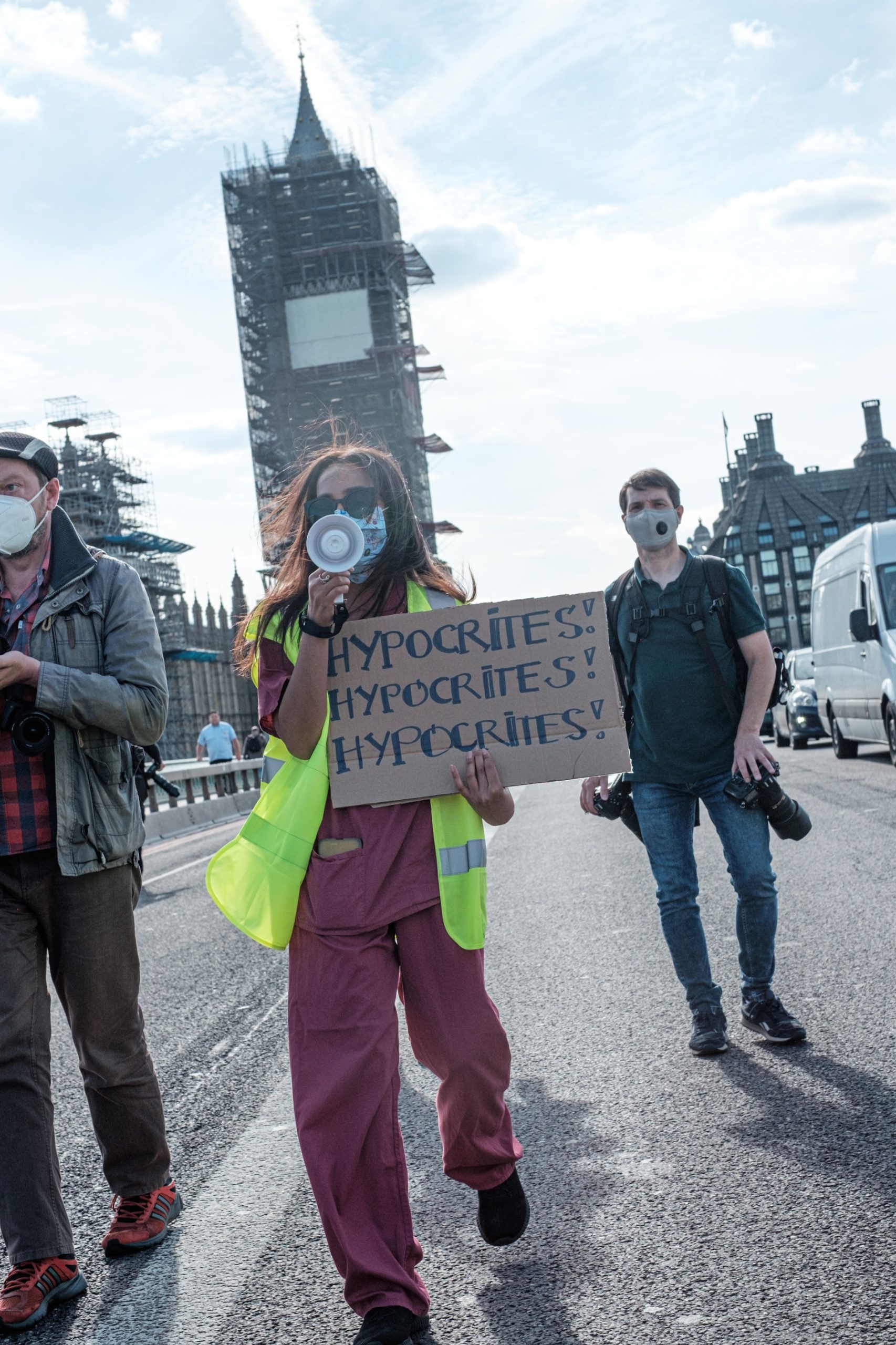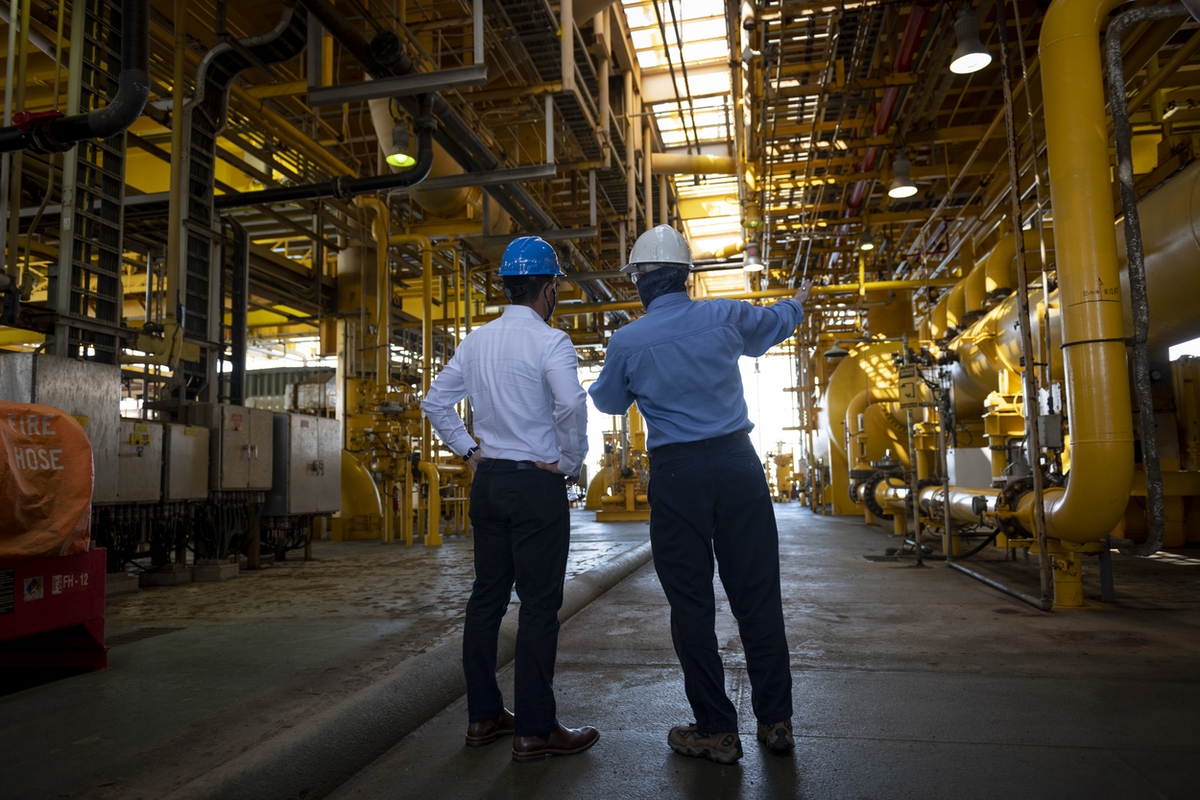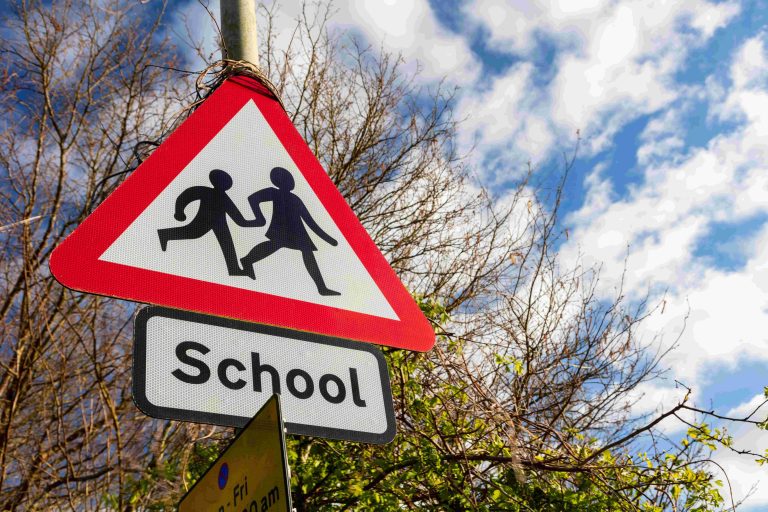BLOG
Health and safety | 3 leadership lessons from the world of sport and politics
Written by Scott Crichton on 22 February 2022

While maintaining a safe and healthy workplace is a collective effort, without strong leaders at the helm, even the best laid plans can go awry, health and safety culture can crumble, and accidents will inevitably occur.
Amongst many other attributes, good health and safety leaders champion the cause, embody safe behaviours, and engage others in achieving the organisation’s safety goals. As well as improving employee’s safety behaviour by as much as 86% and reducing lost time and minor injury rates by around 35%, effective safety leadership has been shown to create better business continuity, reduce insurance premiums, improve organisations’ reputation, and contribute to all-round better economic performance.
Above all, good leaders always look to become better leaders, and this often means reflecting on real-life examples, good and bad. From a stream of Downing Street scandals to a beloved NFL legend retiring, 2022 has already provided numerous lessons in leadership, many of which are transferrable to occupational health and safety.
Here are some such lessons which business leaders and health and safety professionals would do well to apply.
1. Boris Johnson: You can’t expect people to follow rules which you’re not following yourself
Boris Johnson has had the unenviable job of leading the UK through a global pandemic which has raged on for almost two years. While the country is now returning to some semblance of normality, multiple scandals have emerged recently that have tarnished the Prime Minister’s reputation and prompted many people, including members of his own party, to question whether he is fit to lead.
For those in charge of organisations, as well as those individuals upon whom an organisation’s health and safety culture hinges, there is much to be learnt from these scathing headlines. However, the big takeaway – and the underlying criticism levelled at the PM – is clear: don’t break your own rules.
This is a particularly pertinent when applied to occupational health and safety, as rules exist for a reason and, if not practised by those in senior positions (particularly those who are responsible for setting them), this will greatly undermine their importance and give people an excuse not to follow them. A failure to lead by example can quickly erode your health and safety culture and chip away at your authority; leaders will be perceived as hypocritical, leading to a lack of respect and resentment from those beneath them, and ultimately making it much harder to enforce rules and challenge individuals who cut corners or engage in risk-taking behaviour.
Personal protective equipment (PPE) is an obvious example. Leaders must ensure that when they enter areas where they require PPE to be worn, they too follow their own instructions and wear it without excuses. This goes for any other rules and requirements of employees; in order to maintain trust, you must walk the talk. Failure to do so can be a critical error and one that is extremely hard to come back from.
Indeed, the Prime Minister isn’t the only example of how damaging an authority figure’s disregard for the rules can be; the Barnard Castle incident is often cited as a turning point in the public’s willingness to abide by lockdown restrictions, with one resident of the town saying there is “no way the passage of time should make any difference to the enormity of what he did”.

Do you need support?
Speak to us for an honest, no obligation chat on:
0345 226 8393 Lines are open 9am – 5pm
2. Tom Brady: You must be open to feedback and willing to evolve
Tom Brady, often touted as the greatest NFL player of all time, has a number of times in his 22-year career been described as the underdog. He was overlooked by many, with ESPN’s Max Kellerman famously calling him a “bum” and saying he “would fall off a cliff” in 2016. Despite this, Brady went on to win three Super Bowls with two different NFL franchises and become a three-time MVP winner.
Self-development is the key to effective leadership, and Brady was certainly willing to evolve his game, especially where he played with different teammates. Like Brady, health and safety leaders must be receptive to feedback, adaptable and willing to challenge their game plans and change them accordingly.
Further, where Brady excelled was in bringing his whole team together, regardless of whether they were experienced players or relative newcomers. In the same way, occupational health and safety leaders must be willing to listen to those around them.
Often the best suggestions come from those who are actually doing the job on a daily basis and are therefore familiar with the risks. Being open to and encouraging this sort of input can really help to fine-tune your OSH management system and, just as importantly, help to win the hearts and minds of those who have a negative perception of health and safety.
As the saying goes, the most dangerous words in business are “we’ve always done it that way”, and that’s certainly true as far as health and safety is concerned. Successful leaders, and successful OSH management systems, call for continuous improvement, and for people to feel able to call out poor attitudes and behaviours. Leaders must be willing to be challenged and take on feedback, both positive and negative, as this allows us to identify the best possible solutions to workplace health and safety risks.
3. Jacinda Ardern: The safest option won’t always be the most popular – but if you build trust first, people are more likely to listen
New Zealand Prime Minister Jacinda Ardern is often hailed as one of the leadership success stories of the coronavirus pandemic. Her leadership style is one of empathy and compassion, and she has been widely praised for her clear, consistent messaging during a time of crisis. Unlike the recent raft of criticism levelled at Boris Johnson, many people feel that Ardern “doesn’t just preach at them; she’s standing with them.”
However, despite her success in protecting her country from the worst ravages of COVID-19, Ardern has recently slumped in the polls as a result of her strict pandemic policies. Still, she remains resolute: “I still feel really confident knowing that people know we’ve made those tough decisions for the right reasons”, she said. “And, yes, that will have an impact on things like polls, but it doesn’t change those decisions we’ve made and how well they’ve served New Zealand.”
No doubt Ardern has had to battle with a common dilemma faced by many health and safety leaders: whether it is more important to do what’s popular or what’s safe. This is a delicate balancing act that requires pragmatism and diplomacy. The latter of course is the primary goal; leaders shouldn’t relent on necessary safety measures simply because a rule is unpopular, inconvenient or creates extra work. However, arguably, without the respect and support of your team, safety efforts will fall flat. As ex-BBC boss Greg Dyke said recently, “Is it best to be loved or is it best to be feared? It’s best to be loved and respected because then will give you the opportunity that even if you get it wrong, fine.”
Indeed, an organisation’s safety culture comes down to establishing a deep trust between the company and its workers. As such, where Ardern has an advantage over Boris Johnson when it comes to enforcing less-popular rules is that she has been able to build that trust first. As former New Zealand Prime Minister Helen Clark put it, “ may even think, Well, I don’t quite understand why did that, but I know she’s got our back. There’s a high level of trust and confidence in her because of that empathy.”
All health and safety leaders will have to lay down the law at some time or another, but it’s what you do beforehand that will determine how people respond. It’s not uncommon for people to be resistant to rules – indeed, health and safety is often viewed as unnecessary red tape – but by taking the time to develop trust, establishing credibility, and explaining not just what you’re trying to do but why you’re trying to do it, it’s far more likely that people will be receptive to your requests and follow instructions – even if they don’t 100% agree with them themselves.
Related Content
Specialist support for businesses and safety leaders
From embedded consultancy support to bespoke training, WorkNest helps organisations across the UK to develop their safety leadership skills and management systems so that they’re set up for health and safety success.
Whether you’re in need of support at board level, mentoring for in-house personnel or help with a one-off piece of work such as a climate survey or mock trial, our services are delivered by qualified professionals and are designed to help you demonstrate directors’ commitment to health and safety, develop leaders’ competence and drive improvements across your organisation.
For more information and to discuss your specific needs, get in touch with our team on 0345 226 8393 or request your free consultation using the button below.












